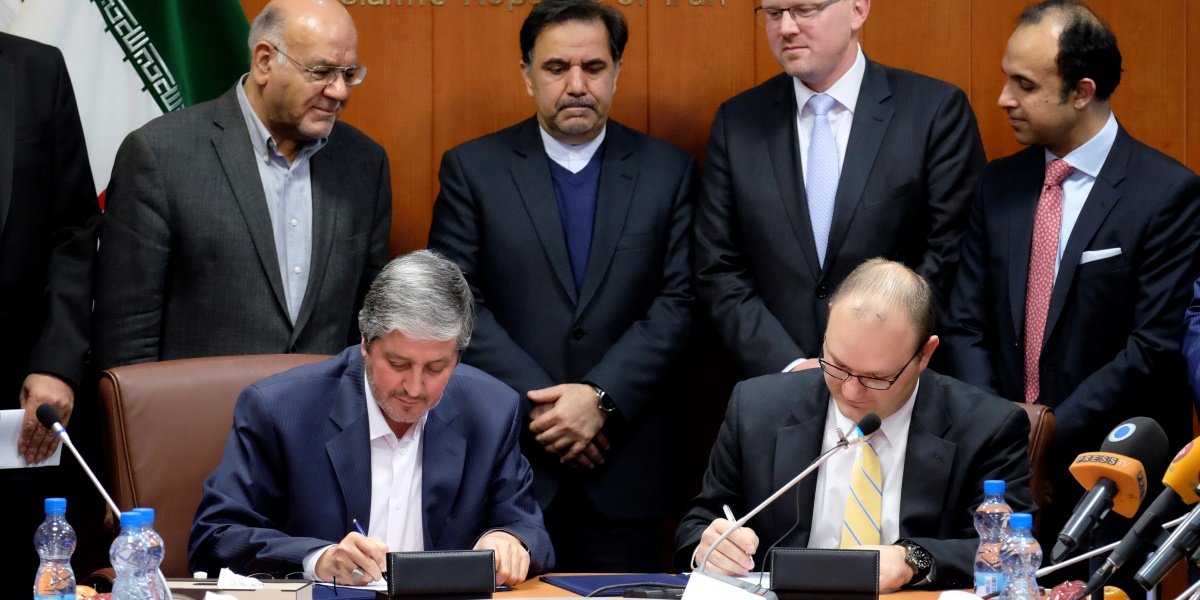Challenging the Iranian Influence over Iraq
A new balance of power is emerging between Russia and the U.S. as well as among regional powers including Turkey, Iran and Saudi Arabia.
More


Turkey's Syria Policy after Aleppo
The Turkish-backed Free Syrian Army needs to liberate al-Bab and reinforce the safe zone with moderates who left eastern Aleppo under the Turkey-Russia deal
More
At the end of the day, Obama did not act and the people of Syria suffered. This will continue to haunt his foreign policy legacy
Turkey is the main humanitarian actor on the ground spearheading intense shuttle diplomacy with Russia for a peaceful resolution of the Aleppo crisis
The main motive of Turkish-Russian relations is the interdependence in the economy, taking into consideration that bilateral trade between the two countries is quite high.
The world witnessed a major humanitarian crisis last week, as regime forces and its allies committed atrocities in Aleppo, along with the inaction of the U.S. and EU and the rhetorical actions of the U.N. Security Council
Isolated Iran Finds Bosom Buddies In West
Iran is trying to establish its own area of influence before Trump is sworn in and points to Iran as the main other in the Middle East
More


Trump and China
Analysts that haven't seen such Trump's suprising diplomatic style in international relations, cannot comment on the future of the frozen US-China relations
More
There is a genocide going on in Aleppo in front of the eyes of the entire world; civilians are being killed indiscriminately, without a care for whether man or woman, child or adult, child, young or old
Egypt's warming toward Russia, Iran and Syria, and its ongoing hostility to Turkey, is fatally undermining relations with Saudi Arabia
Ankara is firmly back in action as an emerging power acting proactively in regional and global matters
Operation Euphrates Shield has mobilized the Syria equation again and accelerated the political process. It also came to light that the quelling of the July 15 coup attempt intensified Turkey's counter-terror activities both in Syria and Northern Iraq
The most significant humanitarian crisis since World War II has taken place in the middle of the Middle East. The world will remember this with three different pictures of war.
U.S. President Barack Obama once said during an interview that he resented President Recep Tayyip Erdoğan because he did not employ his great army to fight DAESH.
Having launched operation Euphrates Shield on Aug. 24, Turkey not only helped the Free Syrian Army (FSA) liberate Jarablus but also became directly involved in the Syrian civil war.
Constitutively, the Euphrates Shield operation had two phases. The first phase aimed to liberate several villages and areas in the west and south of Jarabulus in order to be able to lay siege to the city. In the second phase, an offensive attack enabled the entrance of the aforementioned forces to the city center.
The increasing intensity of terrorist attacks on Turkish soil by both DAESH and PKK operatives demonstrate that Turkey's entrance in Syria will create shockwaves by the illicit structures on the ground.
U.S. Vice President Joe Biden's upcoming visit will hardly be enough to fix Washington's relationship with Turkey. Moving forward, U.S. officials have to convince Turks that they are willing to work together with Ankara in the fight against the PKK/PYD and FETÖ.
Biden's visit can bring many good things and opportunities for bilateral relations if the U.S. can show support for Turkey and Turkish people. It is an era that will stay in the memories of the people for many years.
The resistance of the Turks has proven that there is no power stronger than the civilians of a country. The Unarmed Turkish Forces namely the people of the country fought and won against NATOs second largest army.
















